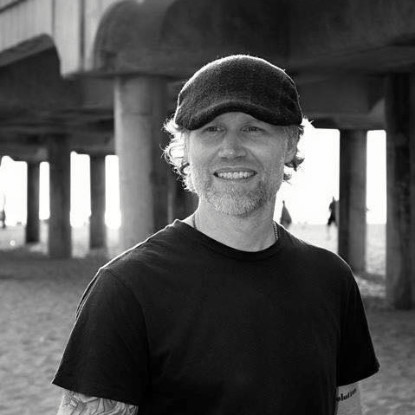Grounded in rhetoric and public/popular culture, Dr. Gordon is most concerned with how various forms of communication materialize attachments, cultivate communities, and constitute relations. Specifically, Jeremy works at the intersections of environmental rhetoric, ecology, and ethics, questioning how human and more-than-human entanglements are - and might be - made manifest. To those ends, Jeremy has been part of the Anthropocene Institute at the University of South Florida, and co-organized the symposium "A New Ecology of Education: Teaching in the Anthropocene," interdisciplinary attempts to foster creative and collaborative approaches to contemporary ecological life, and questions of how to flourish amidst climate change. Jeremy has recently co-edited a Special Issue of Rhetoric Society Quarterly focused on animal rhetoric, and is currently researching how relationships between new-materialism, contemporary and pre-modern myth, and rhetoric expand notions of environmental communication and environmental justice. Committed to blending theory and practice, research and teaching, Jeremy's approach to pedagogy is very much centered on fostering students' capacities to meaningfully and creatively take part in shaping and reshaping social, cultural, political, and ecological relations. Deep play, imaginative immersion, and ethical reflection are integral to Jeremy's pedagogical philosophy, especially as they might encourage embodied awareness of how communication works to fashion everyday encounters and habits of ongoing communicative engagement. As such, he is most invested in the presence of popular culture in teaching and learning, in which pop culture becomes a site for critical study, theoretical exploration, and inventive potential. Prior to joining the Gonzaga community, Jeremy taught in the Honors College at the University of South Florida.
Co-Editor of "A Rhetorical Bestiary," Special Issue for Rhetoric Society Quarterly 47 (2017)
"(Re)fashioning PTSD's Warrior Project: Redressing Prototypes With Mythic Fabrics and Rhetorical Threads," for In/visible War: America's 21st Century Armed Conflict (New Brunswick, NJ: Rutgers University Press, 2017): 69-88.
"Dirty Work and Combat's Cyclical Seasons," (guest blog post) for No Caption Needed: Iconic Photographs, Public Culture, and Liberal Democracy, http://www.nocaptionneeded.com/2011/07/dirty-work-and-combats-cyclical-seasons/
"'Mythic Visions' Redux: Looking to the Heavens With a Tragic Optic," (guest blog post) for No Caption Needed: Iconic Photographs, Public Culture, and Liberal Democracy, http://www.nocaptionneeded.com/2010/08/mythic-visions-redux-looking-to-the-heavens-with-a-tragic-optic/
- Rhetoric and Public Culture
- Critical/Cultural Studies
- Environmental Humanities
- Aesthetics and Visual Culture

